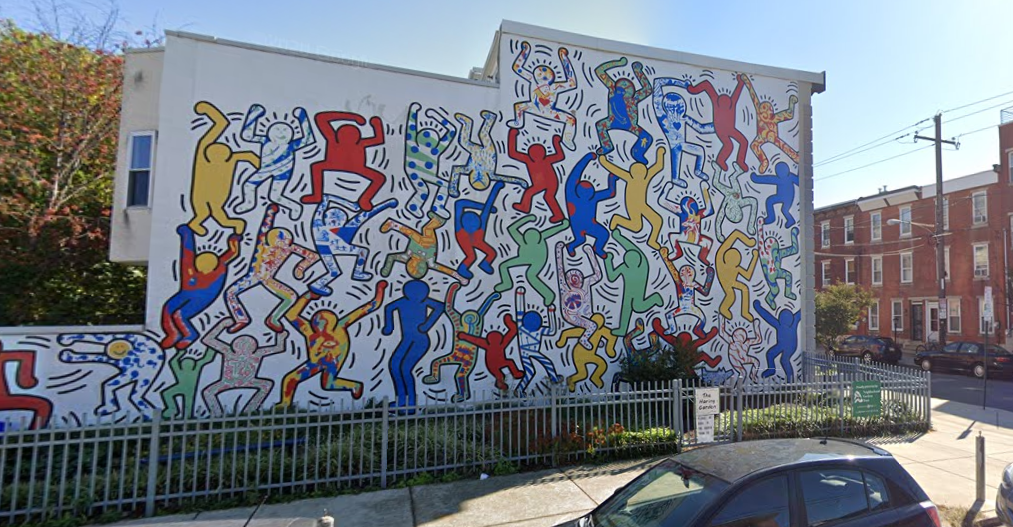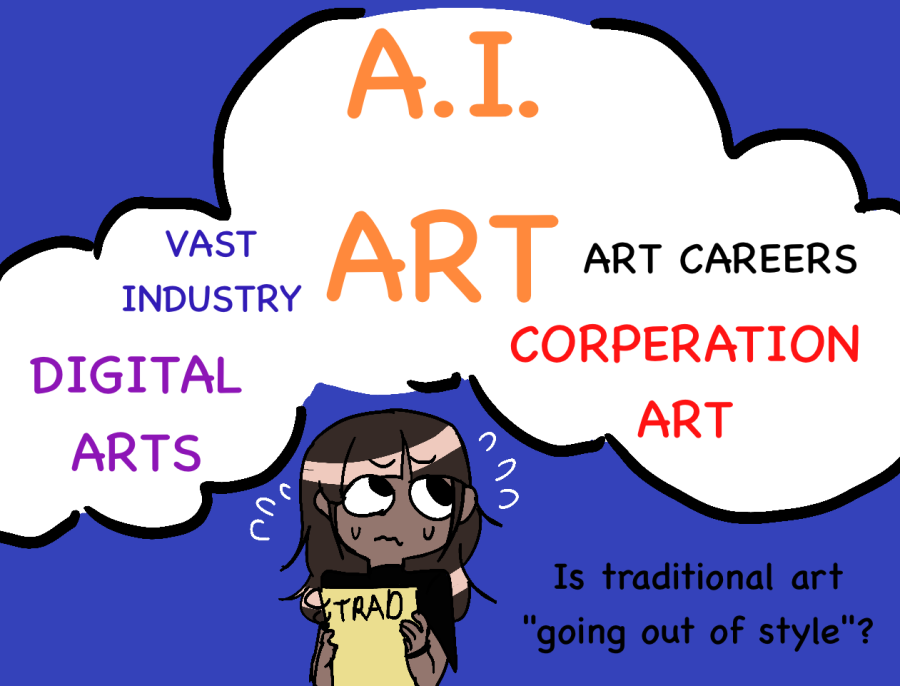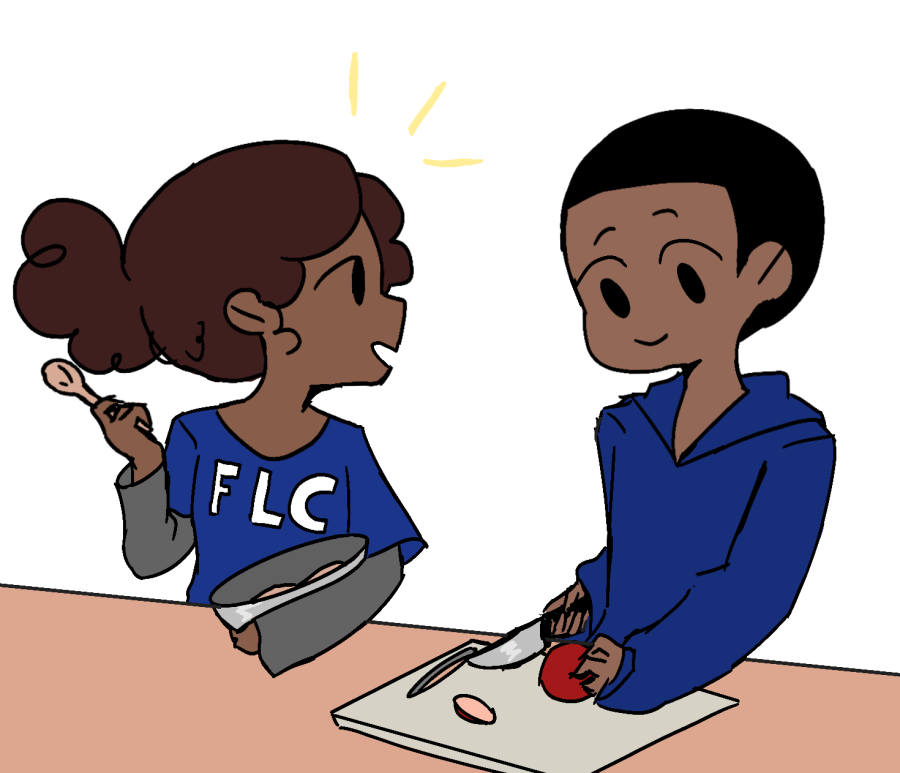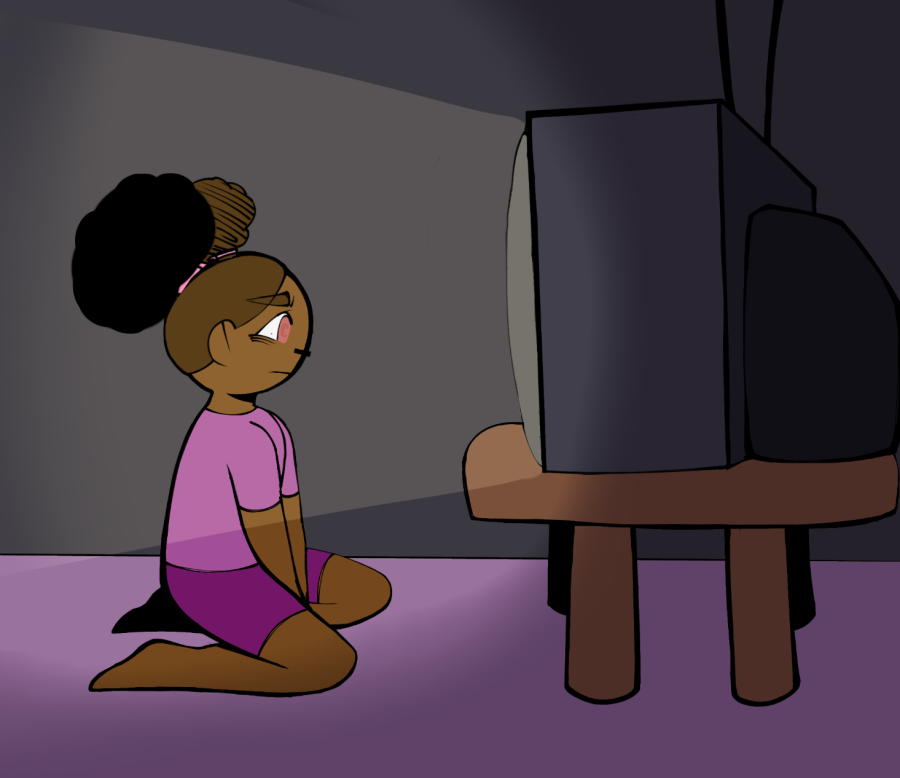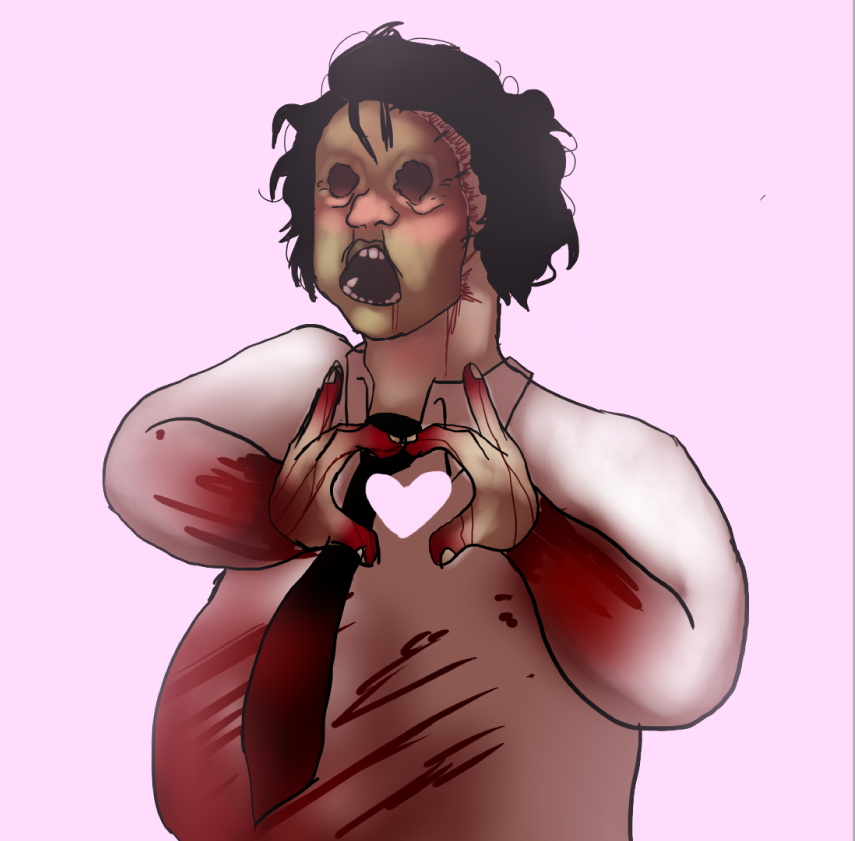
With recent shows like Netflix’s “You” and “Conversations With a Killer: The Ted Bundy Tapes”, the romanticization of criminals skyrocketed in mainstream media once again. Decades have passed by since their death sentences, but the impact left behind lives on through this fascination. In spite of the warnings against predators like Bundy, the general public remains at risk of adopting a harmful obsession with criminals.
By definition, “romanticization” describes the act of glamorizing, glorifying, and idealizing something or someone. Under no circumstance should serial killers be associated with glamorization, let alone idolization. They’ll never be your Mary Sue and John Doe who saves the day; they’re killers. Not to mention, neither would sacrifice you as a cult offering or leave your body to rot in a mountainous area.
But this collective attraction toward criminals is nothing new. During Bundy’s trials, serial killer groupies worshipped and sent him love letters until the end of his sentence. Some admirers went as far as thinking they could “fix” their muse through adoration and love. For these murderers to be repairable, shouldn’t they have redeeming qualities to begin with?
In the grand scheme of things, pop-culture feeds their audience stretched truths about these criminals and their crimes. Often times, one might find their acts sensationalized on the big picture to sell to the public. While true crime is a fascinating genre to invest time into, the annual documentaries “detangling” these people’s motives actually condition viewers into normalizing and furthering criminal behavior.
When word of Bundy’s brutality got out, the public fell into a state of awestruck. People were mesmerized. In fact, the concept of a serial killer hadn’t been defined back in the 70s, which allowed for some movement until our current, cutter-box definition. Generation after generation, society then became desensitized to the extent of the true horrors. Now washed away by this increasing interest is the reality that victims and their families faced.
Put yourself in the shoes of a parent whose child have fallen into the traps of a notorious serial killer. Whether your child survives or not is up to question, but to sit back as the bad guy creeps up to fame is beyond infuriating. To the parent, he’s a wolf in the shape of man. To Hollywood producers, it’s a thicker check.
The men and women who lost their lives at the hands of “charismatic” killers deserve better. Rather than being an afterthought, they should get the opportunity to prevail in the same spotlight and notoriety handed to their killers. Finding interest in crimes brings no real harm, but when it transforms into romanticizing the doers, society will have taken ten steps back. These crimes aren’t trophies to be shown off and highlighted in admiration of the criminal. It’s tragedies that stained our streets.
“Humans are fascinated by evil. We wonder where it comes from and whether we ourselves could ever carry out such an act.”- Crime author Ian Rankin
With recent shows like Netflix’s “You” and “Conversations With a Killer: The Ted Bundy Tapes”, the romanticization of criminals skyrocketed in mainstream media once again. Decades have passed by since their death sentences, but the impact left behind lives on through this fascination. In spite of the warnings against predators like Bundy, the general public remains at risk of adopting a harmful obsession with criminals.
By definition, “romanticization” describes the act of glamorizing, glorifying, and idealizing something or someone. Under no circumstance should serial killers be associated with glamorization, let alone idolization. They’ll never be your Mary Sue and John Doe who saves the day; they’re killers. Not to mention, neither would sacrifice you as a cult offering or leave your body to rot in a mountainous area.
But this collective attraction toward criminals is nothing new. During Bundy’s trials, serial killer groupies worshipped and sent him love letters until the end of his sentence. Some admirers went as far as thinking they could “fix” their muse through adoration and love. For these murderers to be repairable, shouldn’t they have redeeming qualities to begin with?
In the grand scheme of things, pop-culture feeds their audience stretched truths about these criminals and their crimes. Often times, one might find their acts sensationalized on the big picture to sell to the public. While true crime is a fascinating genre to invest time into, the annual documentaries “detangling” these people’s motives actually condition viewers into normalizing and furthering criminal behavior.
When word of Bundy’s brutality got out, the public fell into a state of awestruck. People were mesmerized. In fact, the concept of a serial killer hadn’t been defined back in the 70s, which allowed for some movement until our current, cutter-box definition. Generation after generation, society then became desensitized to the extent of the true horrors. Now washed away by this increasing interest is the reality that victims and their families faced.
Put yourself in the shoes of a parent whose child have fallen into the traps of a notorious serial killer. Whether your child survives or not is up to question, but to sit back as the bad guy creeps up to fame is beyond infuriating. To the parent, he’s a wolf in the shape of man. To Hollywood producers, it’s a thicker check.
The men and women who lost their lives at the hands of “charismatic” killers deserve better. Rather than being an afterthought, they should get the opportunity to prevail in the same spotlight and notoriety handed to their killers. Finding interest in crimes brings no real harm, but when it transforms into romanticizing the doers, society will have taken ten steps back. These crimes aren’t trophies to be shown off and highlighted in admiration of the criminal. It’s tragedies that stained our streets.
“Humans are fascinated by evil. We wonder where it comes from and whether we ourselves could ever carry out such an act.”- Crime author Ian Rankin
With recent shows like Netflix’s “You” and “Conversations With a Killer: The Ted Bundy Tapes”, the romanticization of criminals skyrocketed in mainstream media once again. Decades have passed by since their death sentences, but the impact left behind lives on through this fascination. In spite of the warnings against predators like Bundy, the general public remains at risk of adopting a harmful obsession with criminals.
By definition, “romanticization” describes the act of glamorizing, glorifying, and idealizing something or someone. Under no circumstance should serial killers be associated with glamorization, let alone idolization. They’ll never be your Mary Sue and John Doe who saves the day; they’re killers. Not to mention, neither would sacrifice you as a cult offering or leave your body to rot in a mountainous area.
But this collective attraction toward criminals is nothing new. During Bundy’s trials, serial killer groupies worshipped and sent him love letters until the end of his sentence. Some admirers went as far as thinking they could “fix” their muse through adoration and love. For these murderers to be repairable, shouldn’t they have redeeming qualities to begin with?
In the grand scheme of things, pop-culture feeds their audience stretched truths about these criminals and their crimes. Often times, one might find their acts sensationalized on the big picture to sell to the public. While true crime is a fascinating genre to invest time into, the annual documentaries “detangling” these people’s motives actually condition viewers into normalizing and furthering criminal behavior.
When word of Bundy’s brutality got out, the public fell into a state of awestruck. People were mesmerized. In fact, the concept of a serial killer hadn’t been defined back in the 70s, which allowed for some movement until our current, cutter-box definition. Generation after generation, society then became desensitized to the extent of the true horrors. Now washed away by this increasing interest is the reality that victims and their families faced.
Put yourself in the shoes of a parent whose child have fallen into the traps of a notorious serial killer. Whether your child survives or not is up to question, but to sit back as the bad guy creeps up to fame is beyond infuriating. To the parent, he’s a wolf in the shape of man. To Hollywood producers, it’s a thicker check.
The men and women who lost their lives at the hands of “charismatic” killers deserve better. Rather than being an afterthought, they should get the opportunity to prevail in the same spotlight and notoriety handed to their killers. Finding interest in crimes brings no real harm, but when it transforms into romanticizing the doers, society will have taken ten steps back. These crimes aren’t trophies to be shown off and highlighted in admiration of the criminal. It’s tragedies that stained our streets.




